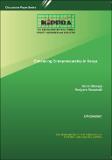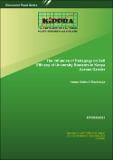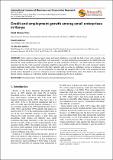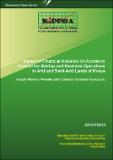| dc.description.abstract | Kenya has a growing Micro, Small and Medium Enterprise (MSME) sector, which contributes greatly to employment but unproportionately to output. While MSMEs in Kenya have the potential of spurring investment, promoting innovations and providing goods and services, they are faced with challenges that contribute to their low survival. Most MSMEs do not exist beyond their third year of operation and for those that do, they may never graduate or transition to small or medium size enterprises. The key constraints experienced by these enterprises include limited skills, informality, low productivity, and a weak entrepreneurship culture. Essentially, MSMEs in Kenya promote necessity entrepreneurship. There is need to reverse this trend in favour of opportunity entrepreneurship, which is more impactful and transformative. The objectives of the study are therefore two-fold: identifying the drivers of opportunity entrepreneurship in Kenya and establishing which industrial sectors have a higher probability of undertaking opportunity entrepreneurship in Kenya. The study uses the micro, small and medium size enterprises survey data of 2016 and undertakes a heterogenous probit analysis to establish the drivers of opportunity entrepreneurship. In addition, the study seeks to establish which industrial sectors have a higher probability of undertaking opportunity entrepreneurship The study identifies age, gender of the business owner, firm size, registration status of the establishment, education status of the business owner, and source of capital for the establishment as predictors of opportunity entrepreneurship. | en |




